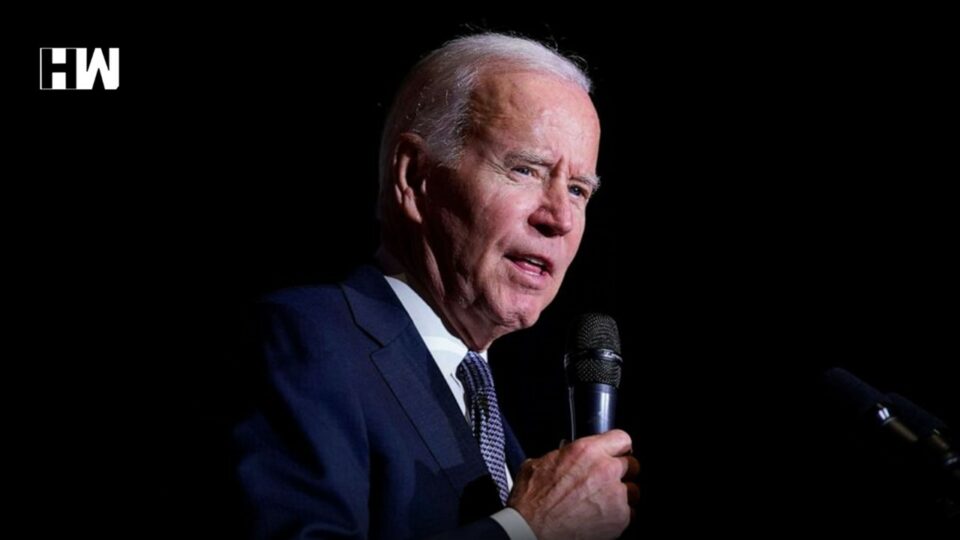US President Joe Biden and Japanese Prime Minister Fumio Kishida will be discussing key issues from climate change to critical technologies
Washington: US President Joe Biden and Japanese Prime Minister Fumio Kishida will be discussing key issues from climate change to critical technologies including through the Quad (comprising of Australia, Japan, India and the US) and advance a free and open Indo-Pacific in the upcoming visit of Kishida.
The Japanese PM will be visiting the US on January 13 amid growing Chinese assertiveness in the region. “President Biden looks forward to welcoming Prime Minister Kishida Fumio of Japan to the White House on Friday, January 13th to further deepen ties between our governments, economies, and our people, read a statement by White House Press Secretary Karine Jean-Pierre.
Over the past year, the two leaders have worked closely together to modernize the US-Japan alliance.
Biden and Kishida will build on expanding cooperation on key issues from climate change to critical technologies including through the Quad, and advance a free and open Indo-Pacific, read the statement.
They will also discuss a range of regional and global issues including North Korea’s unlawful weapons of mass destruction and ballistic missile programs, Russia’s brutal war against Ukraine, and maintaining peace and stability across the Taiwan Strait, added the statement.
Recently, Japan’s Defence Ministry reported that a Chinese Navy Shupang-class survey ship sailed through Japan’s territorial waters near Yakushima Island.
According to the Japan Ministry of Defence/Self-Defense Forces, on December 19, it was confirmed that a Chinese Navy Shupang-class survey ship sailed through Japan’s territorial waters near Yakushima Island.
This show of force by the PLAN coincided with the release of a new National Security Strategy (NSS) by Japan on December 15, 2022. According to this new doctrine, Japan intends to acquire counter-attack capabilities.
“We live in the world of a historical inflection point and in the face of the most severe and complex security environment since the end of WWII,” the new NNS outlines, referring to increased activities of North Korea, China and Russia in Japan’s Area of Security.
President Biden will reiterate his full support for Japan’s recently released National Security Strategy, its presidency of the G7, and its term as a non-permanent member of the United Nations Security Council, read the statement.
Both leaders will also celebrate the unprecedented strength of the US-Japan Alliance and will set the course for their partnership in the year ahead.
Japan is finding itself in the midst of the most severe and complex security environment since the end of WWII with mounting threats from China and North Korea.
Japan has responded with what they call a “major shift” in defence policy. The new strategy does away with decades of precedent to acquire counter-strike capabilities, with a special focus on a free and open Indo-Pacific (FOIP).
Japan will build a multilayered network among its allies and like-minded countries, expand it, and strengthen deterrence. Thus, while utilizing frameworks such as the Japan-US-ROK, and Japan-US-Australia, Japan will enhance security cooperation with Australia, India, the ROK, European countries, ASEAN countries, Canada, NATO, EU, and others, read the National Security Strategy of Japan statement.
Also, Read: Twitter: Elon Musk Reveals US Demanded Suspension Of 250K Accounts, Including Journalist
Specifically, Japan will promote enhanced engagement with like-minded countries and others in the Indo-Pacific region through bilateral and multilateral dialogues, bilateral training and exercises, conclusions of information protection agreements, Acquisition and Cross-Servicing Agreement (ACSA), Reciprocal Access Agreement (RAA), joint development of defence equipment, transfer of defence equipment and technology, capacity building support, strategic communication, and Flexible Deterrent Options (FDO).
China has set clear goals to achieve “the great rejuvenation of the Chinese nation,” the full completion of “building China into a great modern socialist country” by the middle of this century, and the prompt buildup of the People’s Liberation Army to be elevated to “world-class standards,” added the statement.
Under these national goals, China has been increasing its defence expenditures at a continuously high level and extensively and rapidly enhancing its military power, including its nuclear and missile capabilities, without sufficient transparency.
In addition, China has intensified its attempts to unilaterally change the status quo by force in the maritime and air domains including in the East and South China Seas, such as its intrusions into the territorial waters and airspace around the Senkaku Islands, and has expanded and intensified its military activities that affect Japan’s national security in the
Sea of Japan, the Pacific Ocean, and other areas as well, added the statement.
Moreover, while maintaining its policy of peaceful reunification of Taiwan, China has not denied the possibility of using military force. In addition, China has been intensifying its military activities in the sea and airspace surrounding Taiwan, including the launch of ballistic missiles into the waters around Japan.
Regarding peace and stability across the Taiwan Strait, concerns are mounting rapidly, not only in the Indo-Pacific region including Japan, but also in the entire international community, added the statement.
(Except for the headline, this story has not been edited by HW News staff and is published from a syndicated feed.)
As an independent media platform, we do not take advertisements from governments and corporate houses. It is you, our readers, who have supported us on our journey to do honest and unbiased journalism. Please contribute, so that we can continue to do the same in future.

